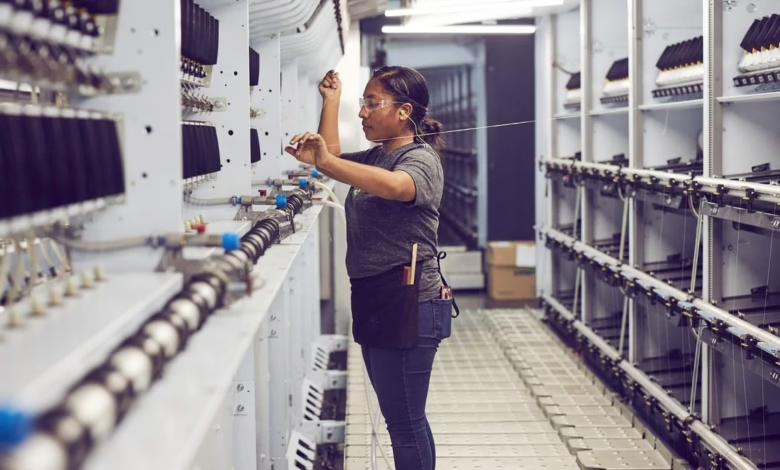Recycled Polyester Rescued a US Factory But at What Cost?

▼ Summary
– A North Carolina bottle processing plant manager claims plastic dust is safely managed, but concerns remain about worker exposure to microplastics.
– A 2023 UK study found microplastics in air and wastewater at recycling plants, posing potential health risks despite advanced filtration.
– Microplastics, including PET and polyamide, have been linked to health issues like IBS, and BPA has been found in polyester clothing.
– Reidsville water utilities allege polyester manufacturers may release 1,4-dioxane, a probable carcinogen, into drinking water sources, though it’s not currently regulated.
– Unifi, a polyester manufacturer, faces scrutiny over environmental and health impacts but maintains compliance with regulations and supports industry research on microfiber pollution.
Inside a North Carolina bottle processing plant, mountains of plastic particles drift like snow around machinery that shreds bottles into flakes. When asked about potential health risks from breathing in the dust, a floor manager insists the facility maintains strict cleanup protocols. Vacuumed plastic dust gets sold off, he explains, while wastewater undergoes filtration. But lingering concerns remain about what happens when plastic recycling meets real-world conditions.
Recent research paints a troubling picture. A 2023 UK study found that even advanced filtration systems couldn’t prevent 6% of processed plastic from escaping as micro- and nanoplastics into wastewater. Air samples near the facility also contained hazardous microplastics small enough to infiltrate human lungs. While the long-term health effects are still being studied, evidence suggests a link between microplastics and digestive issues like IBS. Polyester, though considered one of the safer plastics, isn’t entirely innocent studies have detected hormone-disrupting chemicals like BPA in recycled polyester clothing, prompting legal settlements with major brands.
The environmental stakes extend beyond the factory floor. Local water authorities suspect polyester manufacturers, including Unifi, may be contributing to 1,4-dioxane contamination in the Cape Fear River watershed, a drinking water source for over a million North Carolinians. This probable carcinogen is a byproduct of PET resin production, and while current regulations are lax, the EPA recently flagged it as an unreasonable health risk. Wastewater treatment solutions exist but come at a steep cost, leaving the industry’s future compliance uncertain.
Company executives sidestepped detailed discussions on these issues, deferring to legal counsel or citing regulatory compliance. Unifi’s vague assurances about participating in microfiber research did little to satisfy critics. Environmental advocates argue that recycled polyester can never truly be sustainable or nontoxic, given the inherent risks of microplastics and chemical byproducts. Yet shutting down domestic production raises another dilemma: without U.S. facilities, demand for polyester would shift to overseas factories with weaker environmental oversight.
The debate leaves little room for easy answers. While activists dream of a future where clothing is both eco-friendly and locally produced, the reality is messier. Earlier this year, Unifi shuttered one North Carolina plant, relocating equipment abroad while offering displaced workers positions at remaining facilities. For now, the jobs stay, but the trade-offs between economic survival and environmental health grow harder to ignore.
(Source: Wired)